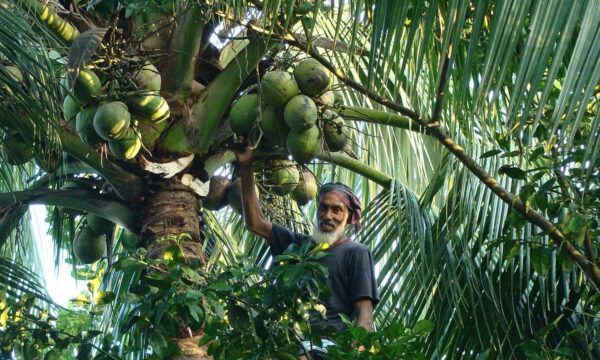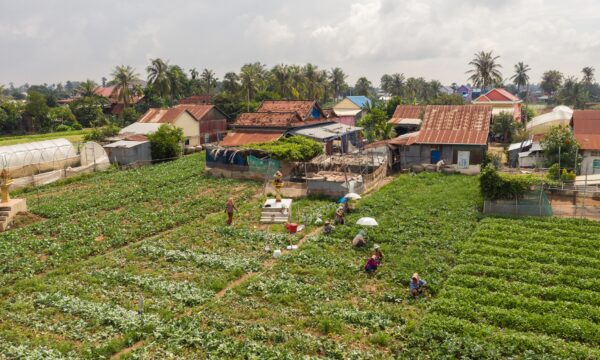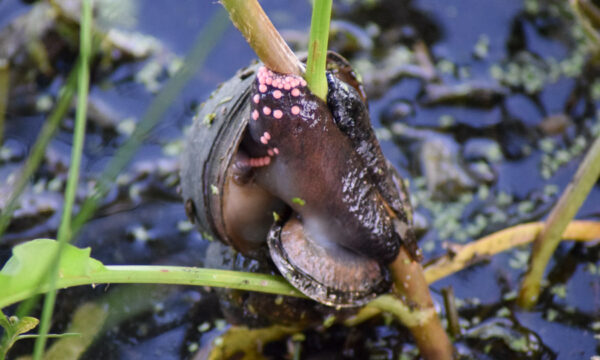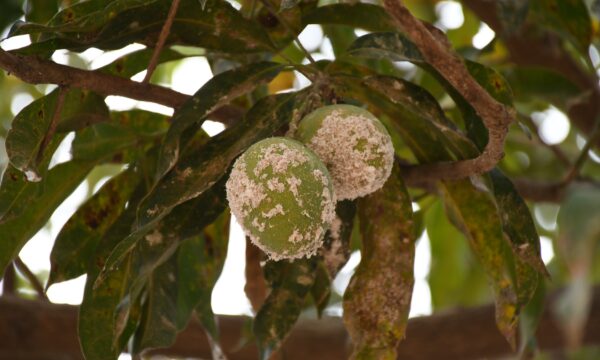
CABI has teamed up with 15 NPPOs for a workshop held to help develop regional Pest Risk Analysis (PRA) to prevent/reduce the invasion of new crop pests in West African countries.
In Africa, for example, the annual cost of invasive animal, pathogen and weed species to agriculture is USD $65.58 billion. The fall armyworm alone contributes to average maize losses of 26.6% in Ghana alone.
The workshop – held under the PlantwisePlus programme – was aimed at National Plant Protection Organization (NPPO) staff who are leading or contributing to national or regional PRAs.
It included use of the latest version of the CABI Pest Risk Analysis tool which presents scientific information from the CABI Compendium to aid the selection of appropriate measures for reducing risk of pest introduction and facilitating the safe movement of plants and plant products.
Pest predicting and prevention
The workshop sought to build upon progress that has been made on pest predicting and prevention over the past few years in West Africa by proceeding to develop regional PRAs for high priority invasive pests for the subregion.
CABI in 2023 organised a regional workshop to train representatives from West African countries on the use of the PRA tool to conduct PRAs.
And in 2024, CABI organised, with support from the Food and Agriculture Organization of the United Nations (FAO) a workshop to assist West and Central African NPPOs to develop regional lists of priority alien invasive pests using CABI’s horizon scanning tool. These priority alien invasive pests which are not yet present in West Africa require PRA to inform decision to prevent their introduction into the subregion.
Dr Lakpo Koku Agboyi, Senior Scientist, Invasive Species Management said, “The process to conduct PRA requires a lot of human and financial resources and time, which are not easy for individual developing countries to get. Hence, the regional approach to develop regional PRAs relying on the national experts from different NPPOs is not only useful to the subregion but also to the individual countries, which can adapt the regional PRAs developed to their specific conditions.”
Dr MaryLucy Oronje, Senior Scientist, SPS, said, “The identification of pest threats and application of appropriate SPS measures to prevent the introduction of invasive species to West Africa region is critical for protecting domestic crop production and facilitating safe import of plant commodities into the region.
“This will also be helpful for trade between West Africa countries and for international market access for exports.”

Dr Roger Day, Global Advisor, Plant Health commended participants on the work they had done, and encouraged them to continue working as a regional team for greater efficiency and effectiveness in managing the risks from new invasive pests
Mr Mathew J. SWINTEH, the representative of Liberia NPPO, said “I extend my deepest gratitude to CABI for organizing the invaluable Regional Pest Risk Analysis training workshop for West Africa subregion. The training provided essential knowledge and practical skills in pest risk assessment, significantly enhancing our capacity to manage phytosanitary risk.
“The expert facilitators engaging sessions, and collaborative environment fostered a rich learning experience. I highly recommend appreciate CABI’s commitment to strengthening plant health in West Africa and I am certain to apply the acquired knowledge to protect our agricultural resources.”
Foundation for justifying Sanitary and Phytosanitary (SPS) measures
He added that all the efforts so far were made to help the NPPOs of the subregion to be familiar to PRA and its application as the foundation for justifying Sanitary and Phytosanitary (SPS) measures and prioritising pests for interventions.
PlantwisePlus is a global programme, led by CABI, which aims to help countries to predict, prepare for and prevent potential plant health threats. It was launched in Ghana in September 2022 with special emphasis placed on improving extension services for the country’s female farmers who have limited access to extension advisory services, including plant health services due to various challenges.
Improving smallholder livelihoods by reducing crop losses
Additional information
Main photo: Participants of the workshop held to help develop regional Pest Risk Analysis (PRA) to prevent/reduce the invasion of new crop pests in West African countries.
Relevant stories
‘PlantwisePlus launches to help farmers in Ghana produce more and higher quality food.’
PlantwisePlus gratefully acknowledges the financial support of the Directorate-General for International Cooperation (DGIS), Netherlands; European Commission Directorate General for International Partnerships (INTPA, EU); the Foreign, Commonwealth & Development Office (FCDO), United Kingdom; the Swiss Agency for Development and Cooperation (SDC); and the Australian Centre for International Agricultural Research (ACIAR).
Related News & Blogs
How do pest risk registers address the spread of plant pests in Africa?
Pest risk registers can help to solve problems in agriculture, addressing the growing global threat of plant pests. Moreover, changing weather patterns, led by rising temperatures, are causing them to reproduce faster and expand into new regions. In ad…
10 July 2025




